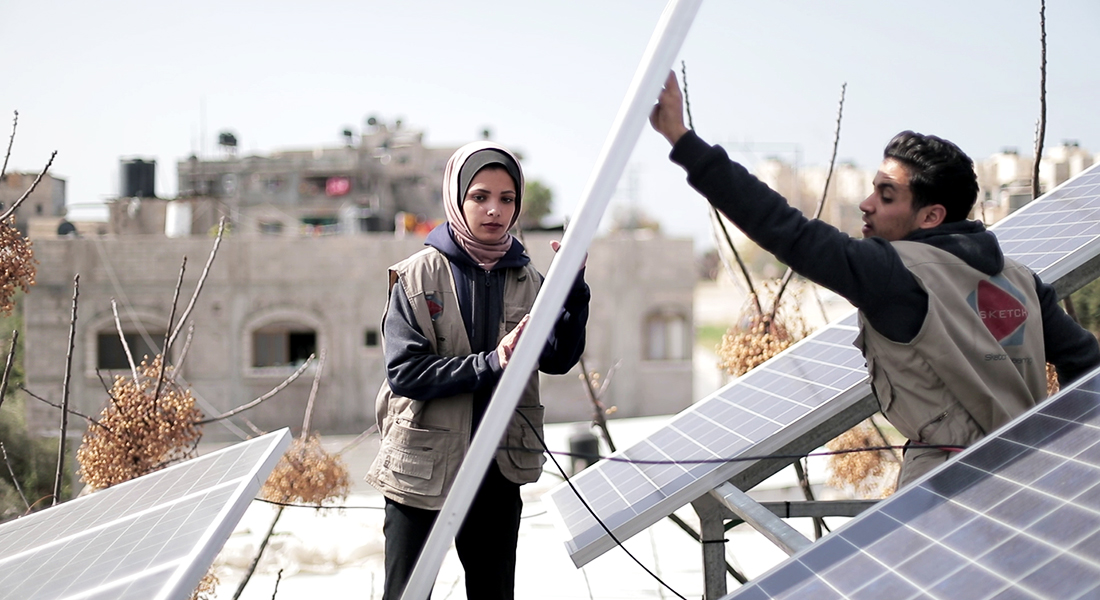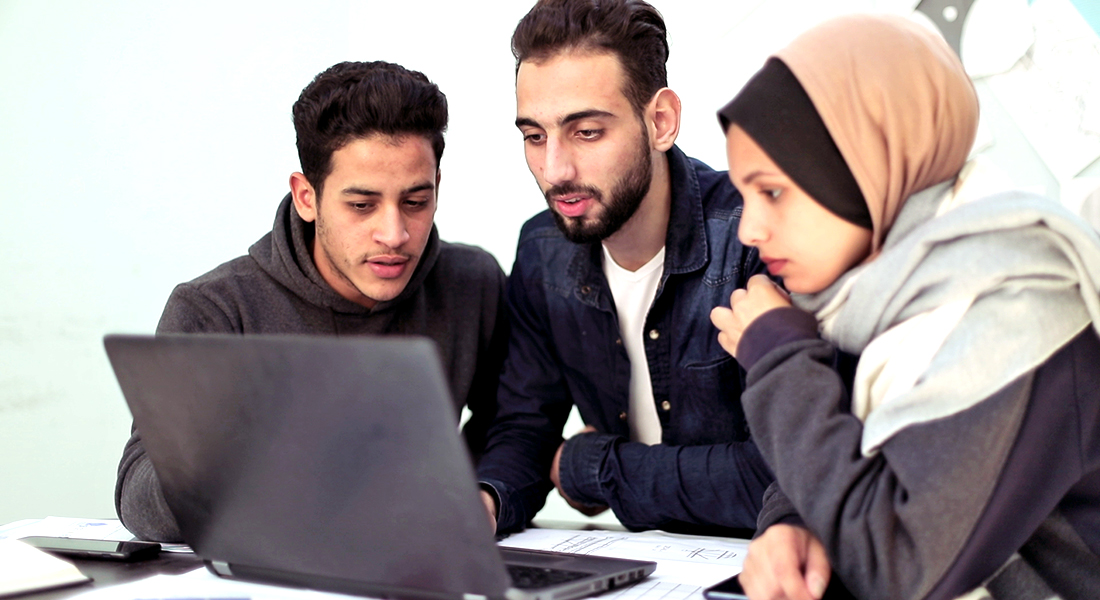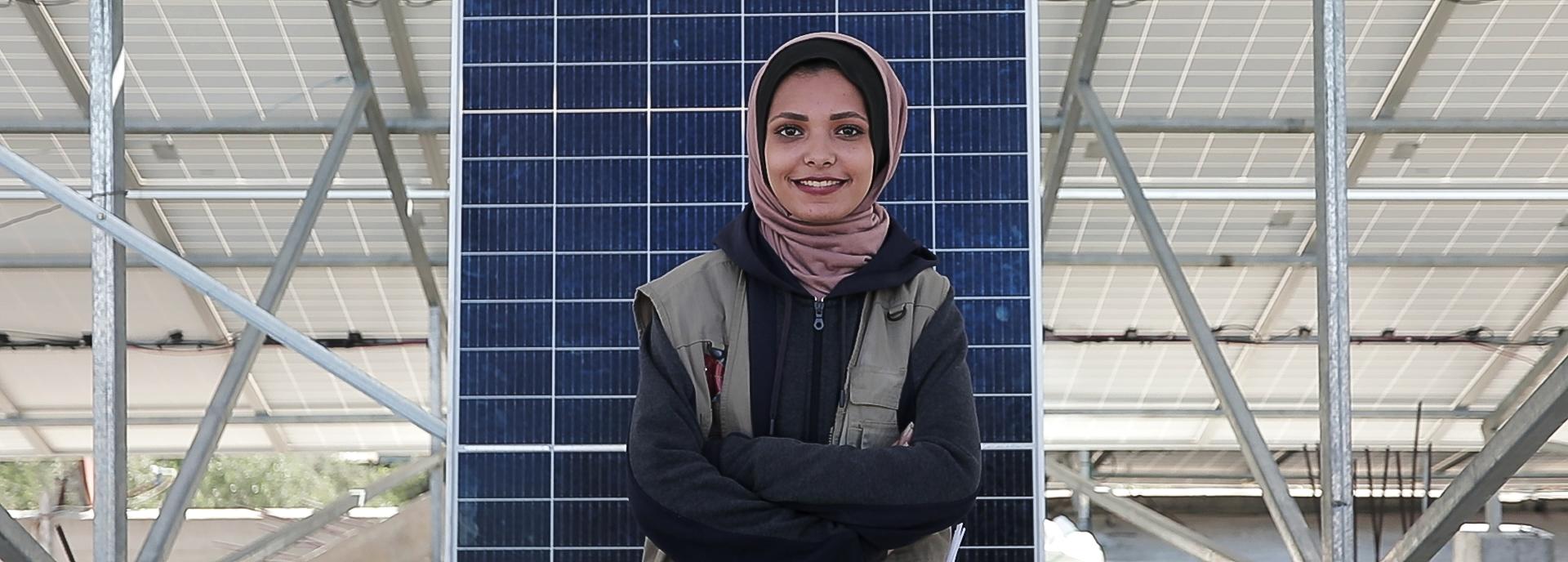Battling Gaza’s electricity shortage
GIZ arranged three-month internships with companies in the region for course graduates. Ghada subsequently secured a job as a technician working for a private company. She also works as a consultant for GIZ and plans to develop her expertise in the field and work for international organisations around the world one day. But for now, she is focusing on Gaza, where people have to cope with power cuts up to 11 hours a day due to a lack of energy.
‘We face a huge problem with energy shortages in Gaza and PV systems are the most suitable and affordable solution,’ she says, pointing to the region’s sunny climate. ‘There are so many things I can’t do because of these power cuts. I cannot study English at night because there’s no electricity, or charge my devices for work,’ says Ghada.
Frequent power cuts are a dominant feature of life in the Gaza Strip, says Hazem El-Mashharawi, Senior Advisor, Gaza Resilience Project (GRP). ‘This acute power shortage affects all aspects of life for Gazans, from homes and businesses to industrial, academic and health institutions.’
So far, the GRP project has provided more than 1 MW of clean solar power energy, serving 37 public facilities, including health care centres, vocational schools, water wells, drinking water desalination plants, road intersections and farms.
The transition to renewable energy is slowly gaining momentum, and solar and PV panels are becoming a common sight on rooftops around Gaza. During the pandemic, panels were installed on hospitals to ensure that vaccines could be stored at the correct temperature. In disadvantaged areas, they are used to power street lighting at night, creating a safer environment, particularly for women.



